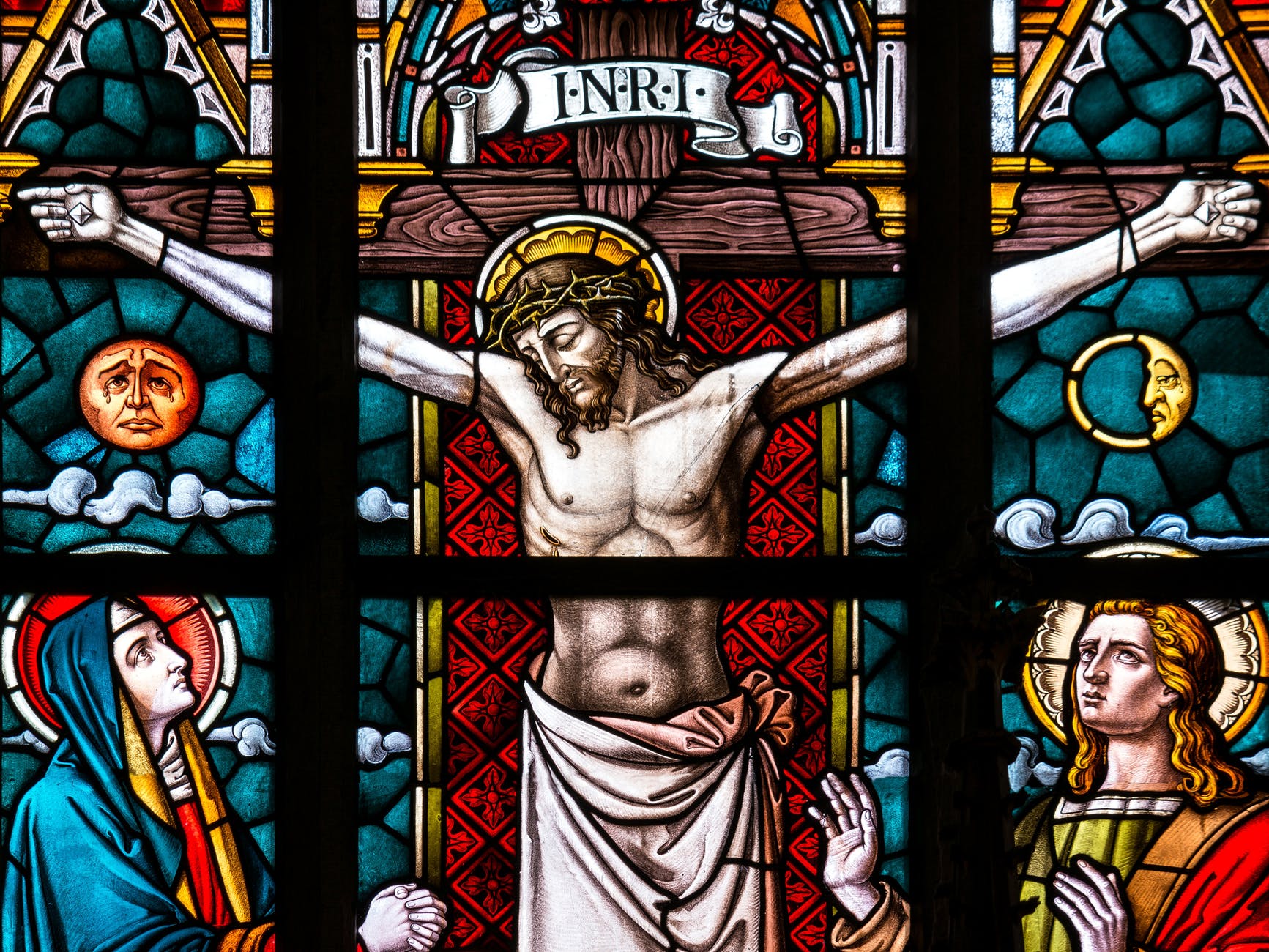 In part one of this series, I rambled, but in part 2, I started to make more sense. Let’s see if I can keep it up.
In part one of this series, I rambled, but in part 2, I started to make more sense. Let’s see if I can keep it up.
I’m trying to move towards the thought that started me writing in the first place. For that I must discuss what it means to live in sin.
In traditional Christianity, all men and women – including even newborn infants – live in sin. It’s a strange thought, that there is something fundamentally wrong with people. “There is no one righteous, not even one,” says Paul. While this is a very pessimistic attitude, we should ask where it came from.
An alien descending from outer space would consider the existence of human beings on earth to be neither a good nor a bad thing. But as humans, our consciousnesses is stuck inside and always attached to our bodies, so it is quite difficult to pass judgment on the overall goodness of the fact that we exist. It’s like asking a fish whether water is good. IT doesn’t even know it is in water. Likewise, our consciousness always is accompanied by a human body, therefore we can’t really say what life is like without one.
But the Christian notion is that people are essentially all sinners – all but one, anyway. We are inherently evil, cursed from the beginning. The biblical story starts out in Paradise, but through something called Original Sin we were expelled into the shitty world. Again, here we have the sado-masochistic theme of gratuitous punishment – we all deserve to be spanked for what we did, don’t we, Lord? Yes we do. Don’t we? Spank us, Lord. “I only beat you because I love you,” says the abusive stepfather. How else would we know that He cared?
One might not think such an abusive story would catch on? But then, why would so many people over the course of so many years believe it?
I’m sure one could get a thousand people to each give their own answer to that question. But I want to focus on the Fall of Man’s specific meaning for me. The driving point of this essay is the question, “What would it take to convince me God loves me?” And I have to start out by saying that I don’t feel particularly loved, and that I think God could do a lot more. That said, my condition does reflect the fallen state of mankind as traditionally described. That part of the story I can relate to.
From a neutral perspective – like suppose a bunch of aliens came down to do scientific research on us – human existence is not good or evil. It just is. But from my personal perspective, existence feels fallen. We might attribute this to a habit I have, which all people have, by the way, of passing value judgments on things. Some things are good and others bad.
Now let me call your attention to the name of the tree in the Garden of Eden from which Adam and Eve were forbidden to eat. It is called the tree of Knowledge of Good and Evil. To say “knowledge” implies the objective existence of something. To have knowledge of a baseball game implies the external, factual existence of that game. My point is that we might replace that term “knowledge” with something a little more subjective. Suppose the fruit from the tree does not grant knowledge of good and evil, but rather it bestows the habit of seeing things in terms of good and evil. Now I see the actual world, overlaid with value judgments. If this causes me to judge the world as less-than-desirable, it fits the story of “the Fall” perfectly. Before I can make value judgments, it is impossible to see things good or evil. But afterward, it is possible for the world to be “fallen” – regardless of whether the good and evil are “out there.” Perhaps the Knowledge of Good and Evil is more like a revelation of the world as it really is. This certainly corresponds to human psychological development much more than Genesis corresponds to anything resembling physical evidence.
It’s as if the world was already bad, but the knowledge of good and evil allows Adam and Eve to see that it is bad.
Anyway, I’m willing to agree with the basic Christian principle that when you’re stuck in a human body, and you have the “knowledge” of good and evil, i.e. you make value judgments about the world, then it’s easy to see yourself and everyone else as being in a sad state of affairs.
The Christian answer to this sad state of affairs is that God sent his only begotten Son, so that all who may believe, will have eternal life.
The question, though, is: Is that enough?
I mean, is it enough for the Lord to send only ONE person – ONCE?
Christianity says it is. I say it isn’t.
The historical Jesus is shrouded in mystery. The first books of the New Testament to be written, according to scholars, are the letters of St. Paul, and, as Carl Jung pointed out, those letters convey almost no information about the human Jesus. By the time any gospel was written down, the life of Jesus had turned into the legend of Jesus Christ.
Why is God capable of begetting only a single son? He could and should have begotten more children, if you ask me. We could go to the other extreme and say something like, we are all children of God. But then Jesus becomes no more significant than your beloved “neighbor.” The world is no longer fallen, and no longer needs saving.
But I need saving.
Living in sin means something different to me personally than for traditional Christians. I don’t focus on all the so-called sins that I’ve committed and for which the world apparently suffers endlessly – because I can’t see any of those. I’m not really that bad a person, and overall I make the world a better place.
So how can I make sense of the idea of living in sin without assuming that I’m a horrible person whose very existence makes the world of other people a living hell?
I have a much simpler and more mundane notion of what it means to live in sin. You won’t get any dramatic “hellfire” speeches from my point of view.
Have you ever felt ashamed of yourself? One might think that being ashamed of oneself is the result of a specific instance of behavior. In normal Christianity, all people are sinners. The Catholic Church in particular has elaborate rituals by which to “confess your sins.” The possibility that one hasn’t sinned isn’t even a consideration, and this attitude goes too far. You need sins to confess, and if you don’t have any, you’re encouraged to make some up. You must feel like a sinner, otherwise the whole edifice makes no sense. But I’m sure lots of people don’t feel like sinners. At minimum, it seems unhealthy to insist that people focus on their own intentional acts of evil. But to this point bear in mind that religious rituals throughout history have addressed such concerns.
The human mind seems to have an innate habit of believing that its actions are the cause of great injustice in the world. To make sacrifice to a god – a burnt offering of an animal or something else – is not too different from confessing one’s sins to a priest. The object is to remove the stain of sin from the individual – or group, as the case may be.
But this is what that has to do with me. I often I in my life feel a sense of anxiety about whether I’m being the best person I can be. Somewhere in my mind, I have an image of a good or perfect person, and I often doubt if I can compare to that image. Unlike the Catholic presumption of self-knowledge, I couldn’t tell you exactly what my “sins” are. Instead, I look at my actions and think, “Could I have done better? Is this the best I can do? What would a good person do?” In the absence of a clear answer, this seed of anxiety can cast a large shadow over my self-image. For me, living in sin means living in doubt as to whether my actions are those of a “good person.”
That’ll do it for part 3. In part 4 I’ll finally say what I’m getting at.



